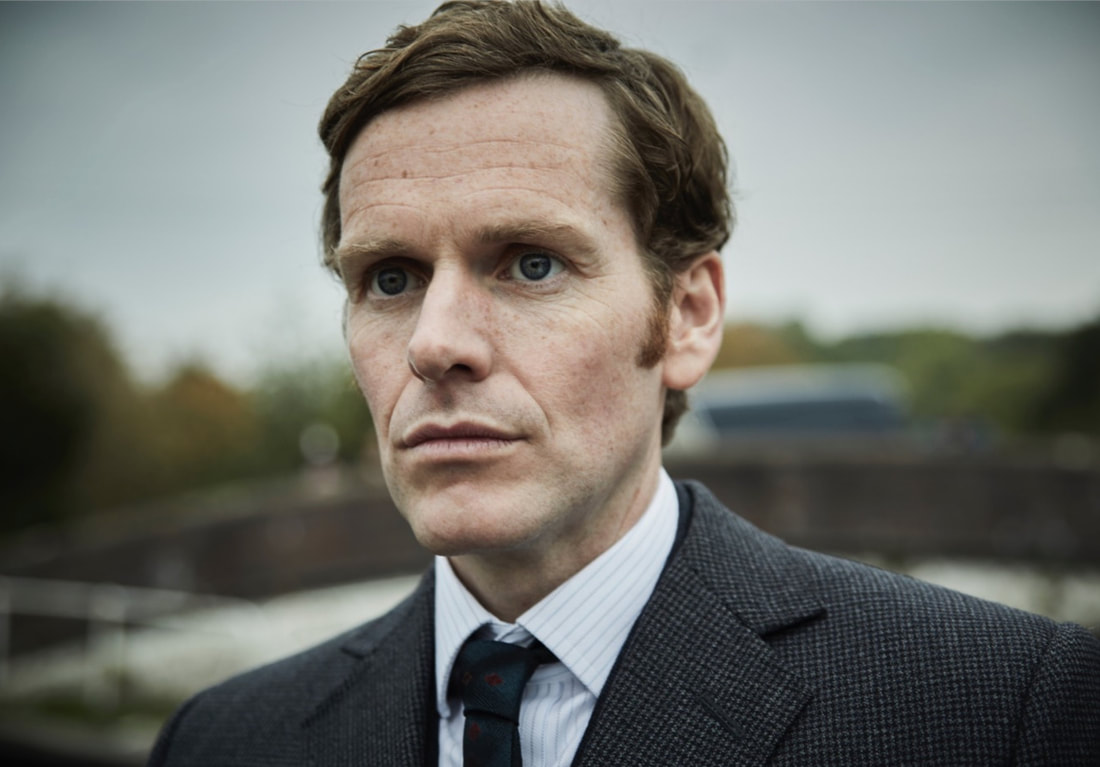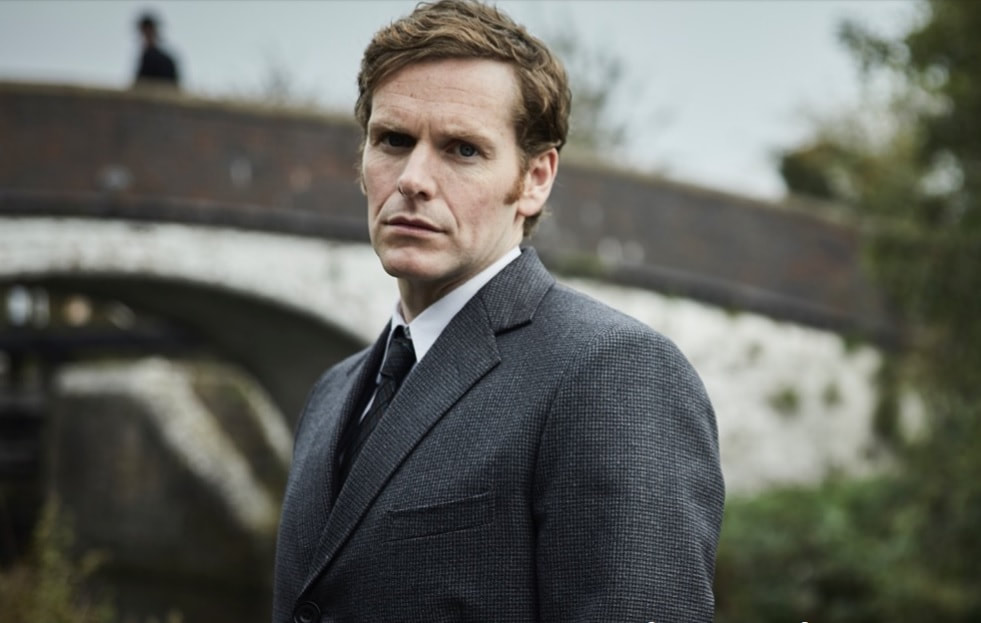|
ITV Press Pack
Endeavour is back for a seventh series. How does it feel to be slipping back into Morse’s shoes? Do you find it easy to get back into the role? It’s fantastic. I’m really delighted and grateful that there’s an appetite for it, so I’m very happy to be back and continue with the story. I never want it to be too easy to return to the character, so this time before we started again, I actually went back to the books and read some of them again. I wanted to remind myself what I found initially engaging about the character and incorporate that as much as I could into it this time. It allowed me to think about it in a slightly different way and not make it as easy for myself. Where do we find Morse at the beginning of the new series? The new series starts on New Year’s Eve, 1969 and we find Morse in Venice where he’s gone to see the opera. He’s put down roots in his life, bought a flat and made the decision to stay in Oxford as a Police Officer, which is quite monumental for him. With that, brings a load of baggage in so much as starting a romance with someone, starting new friendships and ending older ones or calling people out on their actions. He’s very much being his own person when we find him at the beginning of the series. We also see him doing up the flat himself, which is a nice touch. Yes, I really liked that. The producer and production designer did a great job there as we stripped all the walls in the first episode, in the second one they’re all bare and in the third one, they’re wallpapered. That’s a place that we keep revisiting, so they had to keep doing it as other productions were working in the house as well. I’m really pleased that we’ve shown that part of his life, and it feels symbolic of where he’s at. We can see that the moustache has gone - did you miss it or were you ready to say goodbye? You forget about it, to be honest! One of the great things about doing something long-form is that you can show people’s little fads and changes. It was just an idea that we had and ran with. There was talk of us having a scene with him shaving it off, but it just felt surplus to requirements. What was it like filming the scenes in Venice for Film 1? How did you approach this as director of the film? It was incredible and very refreshing, because when you’re working on something like this, there’s usually a big unit which travels around with you which is great and a massive support. However, going to Venice, there was just four of us with very different camera equipment and a different way of getting the shots. There was something about that which was incredibly invigorating, particularly after the more traditional way we’d been telling the story. To be carrying the camera equipment myself, stopping people myself and doing the scene, felt quite guerilla-esque, which wasn’t something I’d done before - either as a director or as part of the show. There was something about it that I found very refreshing and interesting. Was there a particular reason why Venice was chosen? It’s sort of similar to Oxford in a way, and is comparable with the towpaths and the water aspect featured in the series. There’s also something incredibly romantic and timeless about Venice. It’s almost an impossible city and there’s such a mystique around it, which wouldn’t have been the same in another city. Did you feel it was important to explore a new location in the series? I think so. We’re very lucky that we’re afforded that luxury now. It’s important to not keep doing things in the same way, and we’re always trying to push ourselves so you start thinking: Why not Venice? Why not New Year’s Eve? Why not the opera? There’s something about that which is good and I love the appetite from ITV and the team to embrace those challenges and make the most of them. You touched upon the fact that we do see some romance for Morse this series. What can you tell us about this? He meets this woman at the opera, and given that they’re both away from home and it’s New Year’s Eve, they start a romance. There’s something unattainable about this woman. This isn’t the person he’ll be settling down and making dinner with. It’s really useful in the history of his girlfriends and lovers that there’s something that’s not mundane - in fact, it’s the opposite. That’s what she represents. She is something completely different. As you say, the series opens on New Year’s Eve, moving from the 1960s to 1970s. Do you feel there’s a marked change with the characters moving into a new decade? It’s a gradual thing, but there is an evolution for all of the characters as the times are changing. What’s going on at the time means that there is a shift, but it’s a slow thing. There feels like there’s been a social shift, with politics coming to the forefront and the dawn of women’s liberation. How is this touched upon during the series? It’s interesting because - and this is what Russell Lewis is great at - that time is so rich, not unlike now in fact, that if you just dig a little bit and see what was actually going on, it’s a great backdrop to some of these stories. You can sort of acknowledge that we haven’t come miles away now in terms of our attitudes towards immigration, women’s rights, equal pay etc. I find that so interesting, and I think the show works best when it does that, in a very subtle way of course. It’s not a hard-hitting political show, but it’s important to pay attention to what was going on at the time as it offers you so much. Morse also strikes up a new friendship with a man called Ludo. Would you say they bond over a shared interest in the finer things? Absolutely. Like the woman who Morse meets in the first episode, he’s different and there’s something about him which is not the mundane; not the everyday. It’s a financial thing, but also to do with his aspirations about things - his travel and experiences bring so much to the table has not been brought before. There’s an undercurrent of something that he brings - Ryan Gage (who plays Ludo) delivers that so well - and you’re not really sure whether this is good or bad. What effect does this new friendship have on Morse’s long standing friendship with Strange? Ludo and Strange would never be friends, but Endeavour contains both within him. The day to day drudgery of the work that they do can be incredible, but then there’s this aspirational urge in Endeavour for art, opera, music, travel and literature which he doesn’t get at work. So, Ludo and Strange represent two different parts of him. I also think he’s wise enough to keep them separate. He’s not inviting Strange in for a drink, saying he and Ludo will really get along. He knows they won’t get on, so he might as well keep it separate. Perhaps what both the woman he meets at the opera and Ludo represent is something he’s been thirsting for since he left Oxford University - that kind of intellectual rigour. How would you say that Morse and Thursday’s relationship has changed after the events of last series? There seems to still be tension between them… It’s interesting, because in the later books and the Inspector Morse TV series, Thursday is never mentioned, so we need to give a reason for that. Something begins to happen which is irreconcilable, and we’re seeing the beginnings of that now as this series goes on. I think familiarity breeds contempt. I think both of these guys have been in each other’s pockets for many years now and they’re just getting on each other’s nerves. In their way of doing things, they can’t see the wood for the trees with the other and are starting to fail to see the positives. You once again directed an episode of the series. Are you embracing pairing acting and directing? It was awesome. I felt like I learned so much last time and was desperate to come back and put it into practice. I felt way more confident as well this time. I love directing because, whereas acting’s quite elusive in its way, - there’s no real right or wrong - with directing, it’s a skill that you can learn how to be better and more economical in telling the story. I really like being able to improve. How did you balance doing both roles (actor and director) simultaneously? Just being super prepared and knowing exactly what you want and need from a scene, as well as having to be open to things. It’s also important to ask for help. You rely a lot on your cast and the crew, but if you’re clear about what you want and what each scene is about, then anything is possible I think. There’s no time to find out on the day, but that really appeals to me - I like to know what I’m doing and then do it. What’s next for you? I’ve got lots going on! I’ve got a new TV show for next year with a director I’ve been dying to work with for ages, so I’m looking forward to starting that, and then I’m also adapting a book.
1 Comment
Maria Lembregts-Aeschlimann
1/31/2020 10:01:25 am
Thank you for bringing all the interviews together here! Much appreciated. x
Reply
Your comment will be posted after it is approved.
Leave a Reply. |
News Archive
September 2021
|


 RSS Feed
RSS Feed